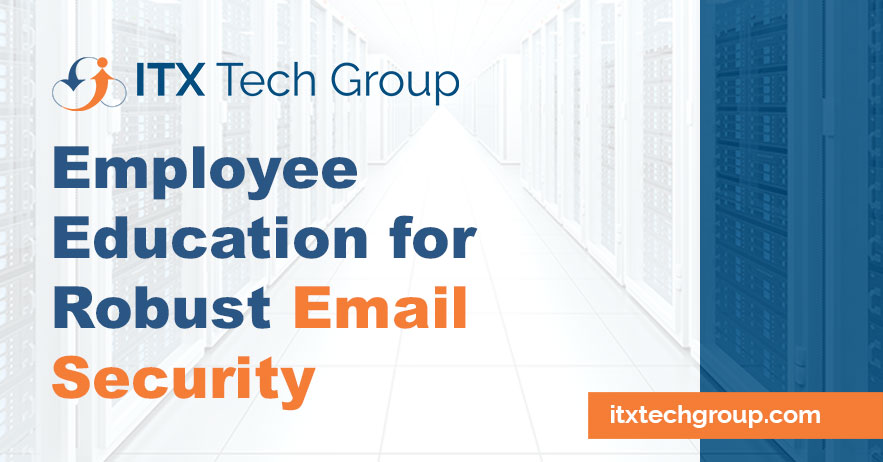Email is a ubiquitous and essential tool in the business world, but it’s also a primary target for cyber threats.
As the threat landscape evolves, it’s crucial for businesses to prioritize employee education to fortify their email security defenses.
In this article, we’ll explore the significance of employee education in achieving robust email security and provide actionable tips for empowering your workforce to become the first line of defense against email threats.
Understanding the Importance of Employee Education
The human factor is a critical component of email security. No matter how advanced your technical defenses are, employees play a pivotal role in recognizing and mitigating potential threats.
A well-educated workforce is better equipped to identify phishing attempts, malicious attachments, and other email-based risks, creating a collective shield against cyber threats.
Tips for Effective Employee Education on Email Security
- Phishing Awareness Training: Conduct regular phishing awareness training sessions to familiarize employees with common phishing tactics. Use real-world examples to illustrate the characteristics of phishing emails and teach them how to spot red flags.
- Social Engineering Awareness: Educate employees about social engineering techniques used by cybercriminals to manipulate individuals into divulging sensitive information. This includes tactics such as pretexting, baiting, and quid pro quo.
- Password Security Best Practices: Emphasize the importance of strong and unique passwords. Provide guidelines on creating secure passwords, and encourage employees to use password managers for added security.
- Multi-Factor Authentication (MFA): Highlight the benefits of multi-factor authentication and encourage its adoption. Explain how MFA adds an extra layer of protection by requiring additional verification steps beyond just a password.
- Safe Link Clicking Practices: Train employees on safe link-clicking practices. Instruct them to hover over links to preview the URL before clicking and to verify the legitimacy of the sender before interacting with any links or attachments.
- Secure Email Communication: Educate employees on the importance of encrypting sensitive information in emails. Teach them how to use encryption tools for confidential communication and the proper handling of sensitive data.
- Reporting Procedures: Establish clear and easy-to-follow reporting procedures for suspicious emails. Encourage employees to report any email that seems unusual, even if they are unsure. A prompt reporting mechanism is crucial for swift incident response.
- Regular Updates on Threat Landscape: Keep employees informed about the evolving threat landscape. Provide regular updates on new types of email threats, tactics used by cybercriminals, and any emerging cybersecurity risks that could impact the organization.
- Simulated Phishing Exercises: Conduct simulated phishing exercises to test the effectiveness of the training. This hands-on approach allows employees to apply their knowledge in a controlled environment, helping to reinforce good security practices.
- Continuous Education: Recognize that cybersecurity is a dynamic field, and threats are constantly evolving. Implement a culture of continuous education, with periodic refresher courses and updates to ensure employees stay informed about the latest security practices.
Conclusion
Employee education is the cornerstone of a robust email security strategy.
By investing in the knowledge and awareness of your workforce, you create a security-aware culture where every employee becomes an active participant in safeguarding the organization against email threats.
Through ongoing education and a collaborative approach to cybersecurity, your business can build resilience against evolving threats and foster a workforce that is well-prepared to defend against cyber risks.
ITX Tech Group has been serving small, medium, and large scale businesses with their IT support and cybersecurity needs all over the United States since 2011, so we’re confident we can provide you with affordable, professional IT solutions for years to come!
Connect with us for a free consultation to discuss your business technology needs.

